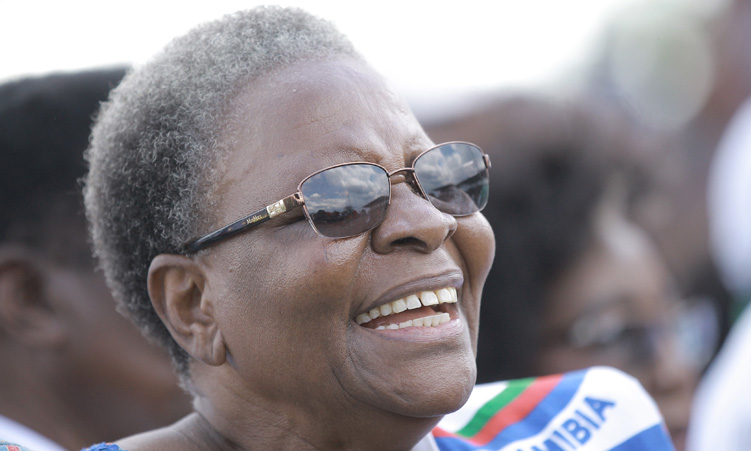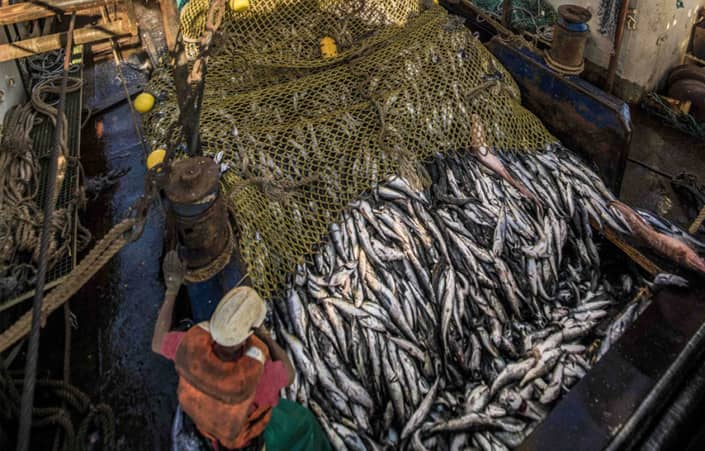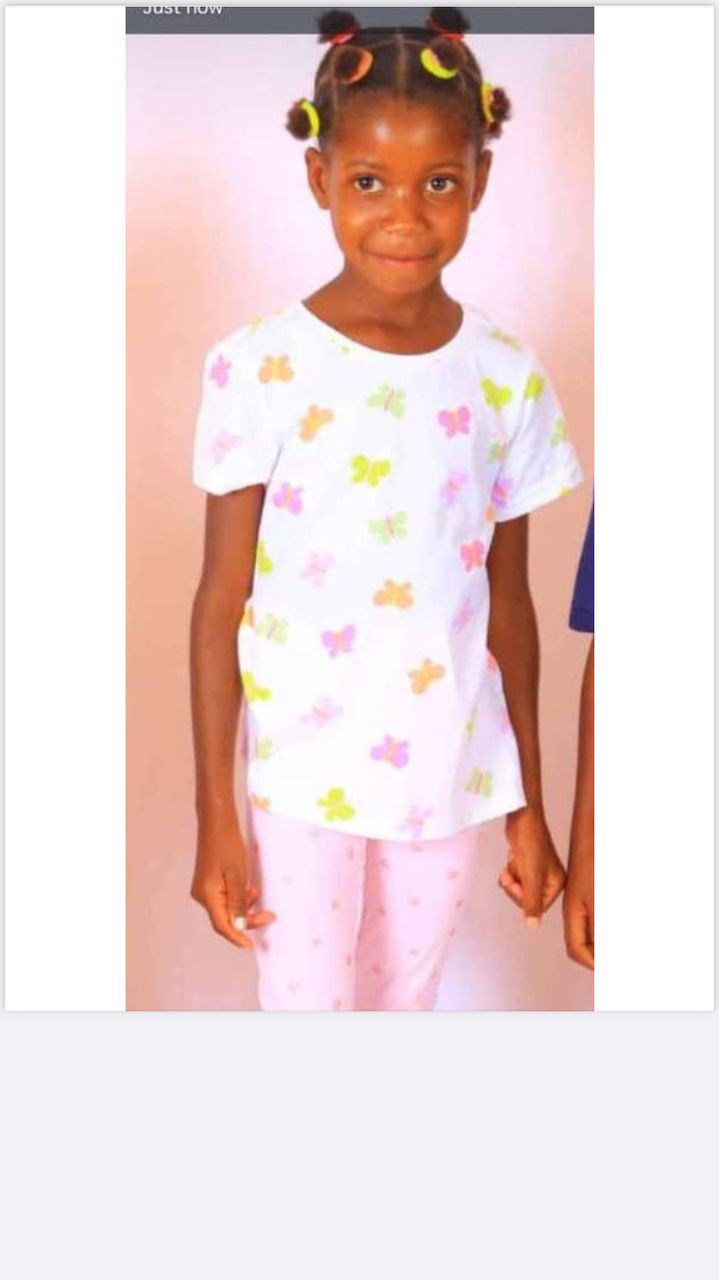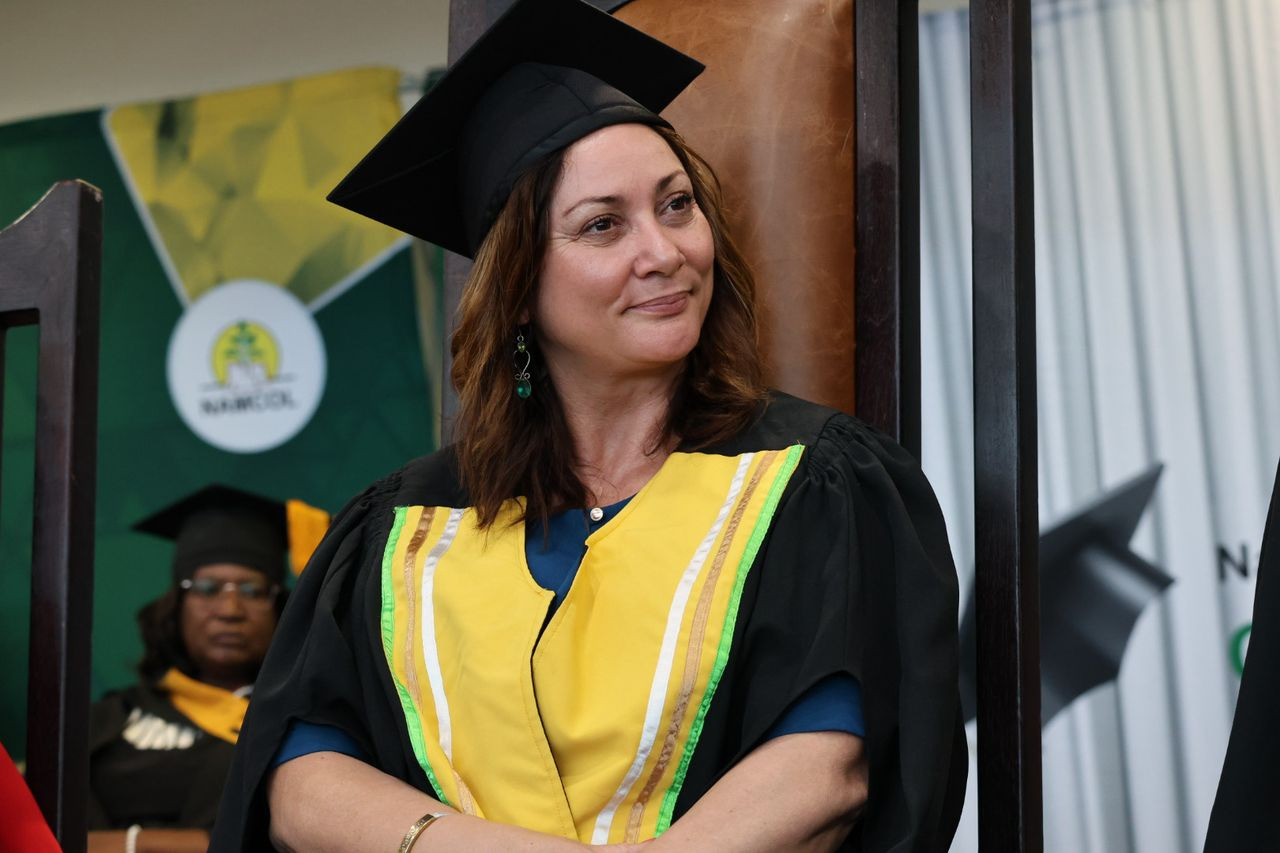Netumbo Nandi-Ndaitwah is now Namibia’s fifth president – making history as the country’s first woman to hold this position.
Although Nandi-Ndaitwah achieved this historic victory, her party, the ruling Swapo Party of Namibia (Swapo), has recorded its worst performance since independence, with its support dropping from 65% to just under 51%.
The Electoral Commission of Namibia (ECN) announced Nandi-Ndaitwah’s victory.
She had at least 57% (638 560) of the vote last night, while her competition, the Independent Patriots for Change’s Panduleni Itula, was stuck at 26% (284 186).
She promised to fulfil the promises she made.
More than one million Namibians voted in this year’s presidential and National Assembly elections, with a turnout of 74.21%, according to the ECN.
This is out of a total of 1 449 569 registered voters in 121 constituencies across the country.
CONTROVERSY
While some view Nandi-Ndaitwah’s victory as a historic milestone, others argue the moment has been overshadowed by controversy.
The disputed 2024 elections, marked by allegations of widespread irregularities, are expected to face legal challenges in the courts.
While recognising the irregularities, political analyst Rakkel Andreas yesterday argued that the trajectory looked clear that Nandi-Ndaitwah was the “superior” candidate.
“And also just looking at her profile, what she stands for and her public utterances. She, by all standards, appeared as the more popular candidate, even more popular than the late Hage Geingob,” Andreas said.
She said Nandi-Ndaitwah enjoyed outside party support because of her public and foreign policy stances.
“So it was always obvious, at least from my perspective, that she was going to emerge the winner,” Andreas said.
The analyst said there were, however, systemic and procedural issues during the elections.
“Starting from the deregistration of two political parties, right up to where we saw ballot shortages, a poor distribution plan, delays, long queues and the list goes on,” she said.
Andreas believes these issues must be resolved in court of law.

RISE TO POWER
Nandi-Ndaitwah’s rise to power has been decades in the making. Her journey has featured wins and losses.
After independence, she steadily climbed the ranks in the government. She claimed victories with greater legal protections for women and children, and earned accolades for her role as environment minister.
Her ascent was, however, far from assured.
The president-elect has been on the fringe of Swapo politics. At some point, she was linked to the breakaway Rally for Democracy and Progress.
After the 2012 Swapo congress, she seemed poised to become Namibia’s first female vice president – part of a deal brokered to win former president Hifikepunye Pohamba’s support for Geingob’s Presidency.
When Geingob reneged, her supporters rallied and pushed Geingob to combine the deputy prime minister and international relations portfolios.
Nandi-Ndaitwah wasn’t even present when Geingob announced his first Cabinet – feeding speculation she was planning to snub him if he were to appoint her only as deputy prime minister.
Her real rise to political power came at around 2017 when she was named as president Hage Geingob’s vice presidential candidate for the ruling party.
She was confirmed as party vice president in 2022, despite a lack of endorsement from Geingob, who favoured other candidates.
BAPTISM OF FIRE
Ndemupelila Netumbo Nandi-Ndaitwah was born on 29 October 1952 to Justina Nekoto Shaduka-Nandi and Petrus Nandi at Onamutai in northern Namibia.
She was the ninth of 13 children. Her father was an Anglican clergyman, and she attended the well-known St Mary’s Mission School at Odibo.
She later taught at the school, just before going into exile.
“Growing up, political activities were also not very far from me,” she told the Swapo Today newsletter two years ago. “I could see Swapo activities being organised by the likes of Kaxumba Kandola. They would come near our house to hold meetings, because there were big trees for shade,” she said.

PRISON BIRTHDAY
Nandi-Ndaitwah spent her 21st birthday in prison. Her crime was protesting a spate of arrests of Swapo leaders.
She and her comrades were imprisoned from August to December 1973.
When they were released, many were sentenced to public flogging. She didn’t face the whip herself, but soon fled the country to join the struggle in exile.
When forced to witness such cruelty, some people get hardened and vengeful. But Nandi-Ndaitwah took a different path, joining Swapo’s diplomatic efforts.
And before joining the struggle for independence, she teamed up with bishop Leonard Auala and reverend Richard Wood in their efforts to ban flogging throughout Namibia.
It’s not that she was opposed to violence as a strategy in the struggle.
In 1983, while based in Tanzania, she married Epaphras Denga Ndaitwah, then a leading figure in Swapo’s military wing, the People’s Liberation Army of Namibia (Plan).
He eventually served two years as Namibia’s defence chief until his retirement in 2013.
Nandi-Ndaitwah’s experiences gave her resolve. Swapo leaders recall that Julius Nyerere praised her steadfastness in arguing Namibia’s case for freedom.
Pohamba supported her party’s candidacy.
At the time of her rise to vice president at party level, Nandi-Ndaitwah’s supporters were adamant that she was the automatic choice to succeed Geingob due to the party’s tradition of allowing the party vice president to take over from the incumbent.
Some Geingob supporters have rejected this tradition.
Institute for Public Policy Research (IPPR) director Graham Hopwood earlier told The Namibian that Nandi-Ndaitwah was always the front-runner to become Swapo’s presidential candidate.
“This is mainly because of her seniority in Swapo and the respect she commands across various parts of the ruling party,” he told The Namibian in 2022.
He added: “She is on the cusp of being seen as too old for a presidential role – particularly in a country made up largely of young people. But this is probably not a major concern for Swapo.”
“She is also accustomed to being on the world stage, having been foreign minister for several years. On the downside, she may have some president Pohamba-like tendencies – as a respectable but largely unenergetic figure without the political vigour needed to take on Namibia’s severe socio-economic challenges.”
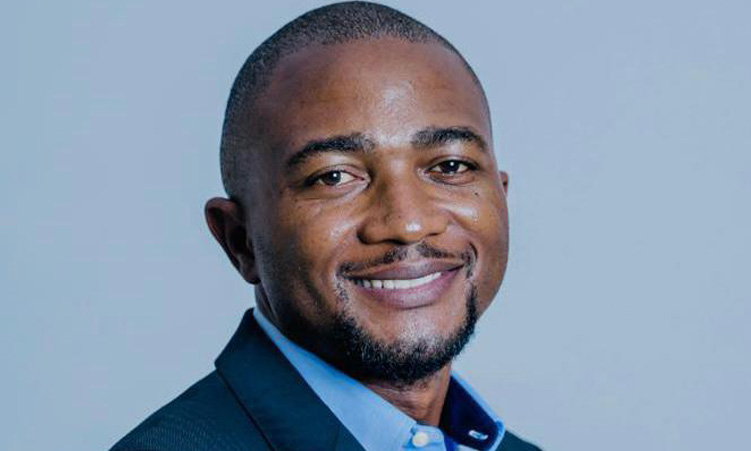
LEGITIMACY
Political scientist Rui Tyitende questions whether Nandi-Ndaitwah would be a legitimate president in the eyes of the many Namibians who were unable to vote and those who think the election process was not free and fair.
“If she was a leader, knowing what has transpired before the elections, she would have either made a statement herself to say ‘look, despite the fact that I would want to be president of this country, despite the fact that I would want to be the first female president of this country to inspire young girls and young women, I would have wanted it to be done within the confines of the law’,” he says.
He says not all Namibians who were unable to vote across the country were given a second opportunity to vote – whether the election extension was legal or not.
“In other words, no voter who wanted to cast their vote on 27 November should have been turned away on account of the incompetence and ill-preparedness of the ECN.
“Therefore, is it possible to restart this process? Or [should] serious reforms take place?” he suggests.
Tyitende says legitimacy is essential in politics.
“You do not want to address the Namibian public, especially those who did not vote for you to think of you as being illegitimate. We do not want to be the next Zimbabwe,” he says.
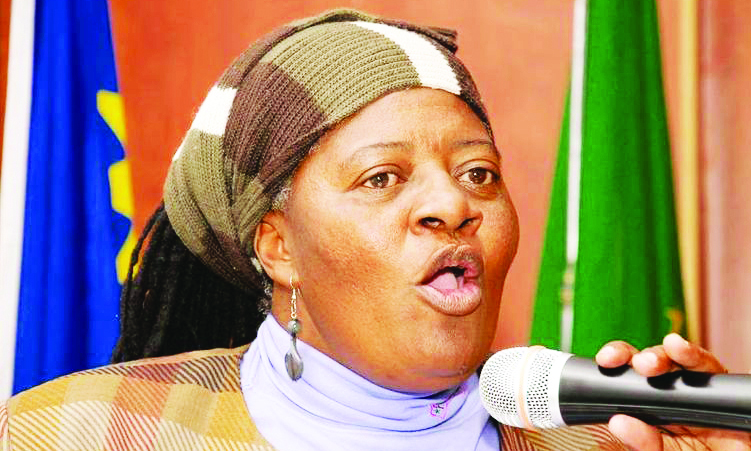
LEADERSHIP INTEGRITY
Social and gender equality activist Rosa Namises has weighed in on the discourse surrounding women’s leadership and integrity in public office.
“I support women’s empowerment. I believe whether the candidate is a man or a woman, we must carry ourselves with dignity, honesty and transparency when taking up leadership positions. When a woman becomes president, she should be proud to serve all of us with integrity,” she says.
Namises expresses concern over the recent electoral process, highlighting several irregularities.
She urges corrective measures to restore public confidence in the process.
WOMEN EMPOWERMENT
Human rights activist Linda Baumann yesterday said Namibia has experienced a historic election in a year that underscores the importance of gender equality that marks a significant moment for Namibia.
“We are on the verge of potentially becoming another African country to have a woman president – an achievement that would resonate deeply on the continent. My initial commitment was to vote for a woman candidate – not based on party affiliation, but on the symbolic and practical impact of supporting women in leadership. I believe many other women share this sentiment,” she said.
She said Namibia must approach the election results with unity and detach the narrative of party politics from the potential milestone of having a woman president.
“If this outcome is achieved, it will signify not only progress in gender equality, but also the maturation of our democracy. This year could celebrate the impact of gender equity initiatives, such as the parliament’s 50-50 representation policy, demonstrating the role of women in promoting good governance, transparency, and accountability,” she said.
According to Baumann, the election process has been deeply disappointing.
“In past elections, we were glued to our televisions, eagerly awaiting results. Today, that enthusiasm has been replaced by disinterest and mistrust, fuelled by misinformation and the ECN’s apparent inability to provide clear and timely updates.
“The issue isn’t just about the Electoral Act itself, but its application. Namibians deserve an electoral process that inspires trust, fairness and transparency. The ECN’s inability to deliver on these principles calls for serious scrutiny. It is imperative that we continue to question their responsibility and hold them accountable,” she said.
Baumann said going forward, there should be a more reliable democratic process.
“This election represents a pivotal moment for Namibia, and we must not allow systemic inefficiencies or incompetence to undermine its significance.”
Veteran journalist Gwen Lister yesterday said the election of a woman president is historic, close to the 35th anniversary of Namibian independence in 2025.
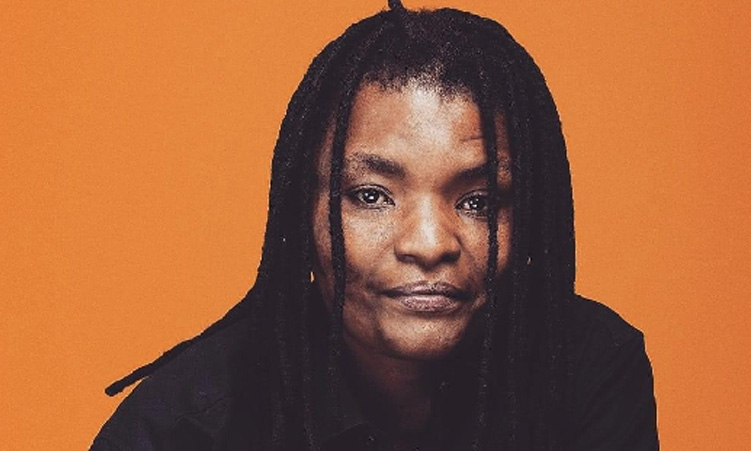
“That she will face daunting challenges in this new role is a certainty. Not least of all the need to tackle the most burning issue of spiralling unemployment, especially among the youth, rising levels of corruption, and not least of all, being a woman herself, the scourge of gender-based violence,” she said.
“Aside from the disorganisation on the part of the ECN it would appear that the percentage poll will be higher than is usual in Namibian elections, probably surpassing the 60% of the 2019 presidential and National Assembly elections.
“What is evident even before the final results are out is that there was a change vote happening – with new kids on the block Independent Patriots for Change likely to become the new opposition to the ruling party, and the youth-driven Affirmative Repositioning also taking a few seats in parliament.
“It remains to be seen whether any court challenge will be successful in setting aside the results of this election.”
Stay informed with The Namibian – your source for credible journalism. Get in-depth reporting and opinions for
only N$85 a month. Invest in journalism, invest in democracy –
Subscribe Now!




